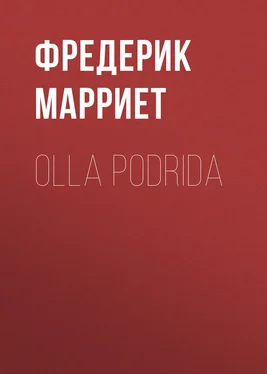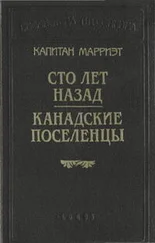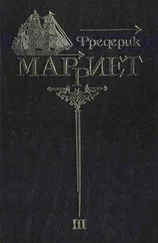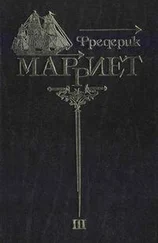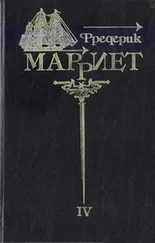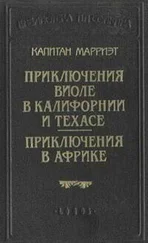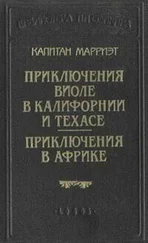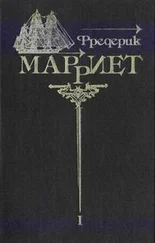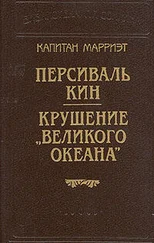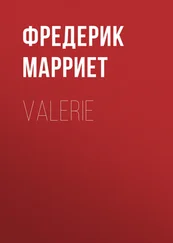Фредерик Марриет - Olla Podrida
Здесь есть возможность читать онлайн «Фредерик Марриет - Olla Podrida» — ознакомительный отрывок электронной книги совершенно бесплатно, а после прочтения отрывка купить полную версию. В некоторых случаях можно слушать аудио, скачать через торрент в формате fb2 и присутствует краткое содержание. Жанр: Путешествия и география, literature_19, foreign_antique, foreign_prose, на английском языке. Описание произведения, (предисловие) а так же отзывы посетителей доступны на портале библиотеки ЛибКат.
- Название:Olla Podrida
- Автор:
- Жанр:
- Год:неизвестен
- ISBN:нет данных
- Рейтинг книги:5 / 5. Голосов: 1
-
Избранное:Добавить в избранное
- Отзывы:
-
Ваша оценка:
- 100
- 1
- 2
- 3
- 4
- 5
Olla Podrida: краткое содержание, описание и аннотация
Предлагаем к чтению аннотацию, описание, краткое содержание или предисловие (зависит от того, что написал сам автор книги «Olla Podrida»). Если вы не нашли необходимую информацию о книге — напишите в комментариях, мы постараемся отыскать её.
Olla Podrida — читать онлайн ознакомительный отрывок
Ниже представлен текст книги, разбитый по страницам. Система сохранения места последней прочитанной страницы, позволяет с удобством читать онлайн бесплатно книгу «Olla Podrida», без необходимости каждый раз заново искать на чём Вы остановились. Поставьте закладку, и сможете в любой момент перейти на страницу, на которой закончили чтение.
Интервал:
Закладка:
“I wonder you don’t go to Bruges,” observed a committee man; “nice quiet place—excellent masters—every thing so cheap—I once bought eighty large peaches there for two francs.”
And all the children clapped their little hands, and cried out for Bruges and cheap peaches.
It was further submitted that it was convenient—you might go the whole of the way by water—and Bruges was immediately under consideration.
“If you go to Bruges, you will find it very dull,” observed another; “but you’ll meet Mrs Trollope there—now Brussels is very little farther, and is a delightful place;” and Brussels was also referred to the committee.
“You won’t like Brussels—there is such a mixture, and house-rent is dear. Now I should recommend Spa for the summer—it is a most beautiful spot—and excellent company.” And Spa was added to the list.
Then after a day or two came an Anti-Teutonic, who railed against Germany—and Germans—German towns, German travelling, and German French , which was detestable—German cookery, which was nothing but grease. “You may imagine,” said he, “and so have many more, that Germany is more pleasant and less expensive than France; but they have been disappointed, and so will you be. Now, for a quiet place, I should recommend Saint Omer—only thirty miles from Calais—so convenient—and very pretty.”
Saint Omer—humph—very quiet and retired—and no politics—and Saint Omer was occasionally canvassed.
“Saint Omer!” said another who called the next day, “you’ll die of ennui. Go to Boulogne—it is delightful—you may be there as retired or as gay as you please.”
Boulogne to be taken into consideration many inquiries made and all very satisfactory—good sands and excellent jackasses for the children.
“My dear friend, Boulogne is something like the King’s Bench—at least most of the people only go there in preference. Every body will suppose that you’ve levanted . Pray don’t go to Boulogne.”
“Why don’t you go by Southampton to Havre—there you’ll have quiet and amusement—beautiful country about Honfleur—scenery up the Seine splendid; and then you can go up to Rouen by water, if you intend to go on to Paris.”
Havre and Honfleur submitted to the committee.
But then came Dieppe, and Brest, and the environs of Paris, Versailles, Saint Germain, Passy, and other recommendations, in which every one particular place was proved incontestably to be more particularly suited to us than any other, and the committee sat for three weeks, at the end of which, upon examining the matured opinions of the last seven days, I found them to have fluctuated as follows:—
Monday morning, Manheim. Evening, Spa.
Tuesday morning, Bruges. Evening Brussels.
Wednesday morning, Saint Omer. Evening, Boulogne.
Thursday morning, Havre. Evening Honfleur.
Friday morning, Dieppe. Evening, Passy.
Saturday morning, Versailles. Evening, Saint Germain.
Sunday morning, Spa. Evening, Brussels.
The fact was, that there was a trifling difference of opinion in the committee—the great object appeared to be, and the great difficulty at the same time, to find a place which would suit all parties, that is to say, a place where there were no politics, plenty of gaiety, and cheap peaches.
Chapter Three
Paddle, paddle—splash, splash—bump, thump, bump. What a leveller is sea-sickness—almost as great a radical as death. All grades, all respect, all consideration are lost. The master may summon John to his assistance, but John will see his master hanged before he’ll go to him; he has taken possession of his master’s great coat, and he intends to keep it—he don’t care for warning.
The nurses no longer look after the infant or the children, they may tumble overboard—even the fond yearnings of the mother at last yield to the overwhelming sensation, and it it were not for the mercenary or kind-hearted assistance of those who have become habituated to the motion of a vessel, there is no saying how tragical might be the commencement of many a party of pleasure to the Continent.
“O lauk, Mary, do just hold this child,” says the upper nurse to her assistant; “I do feel such a sinking in my stomach.”
“Carn’t indeed, nurse, I’ve such a rising .”
Away hurried both the women at once to the side of the vessel, leaning over and groaning heavily. As for the children, they would soon have been past caring for, had it not been for my protecting arms.
Decorum and modesty, next to maternal tenderness, the strongest feelings in woman, fall before the dire prostratiou of this malady. A young lady will recline unwittingly in the arms of a perfect stranger, and the bride of three months, deserted by her husband, will offer no resistance to the uncouth seaman, who, in his kindness, would loosen the laces that confine her heaving bosom.
As for politeness, even the ancien régime of the noblesse of France put it in their pockets as if there were a general chaos—self is the only feeling; not but that I have seen occasional traits of good-will towards others. I once witnessed a young lady smelling to a bottle of Eau de Cologne, as if her existence depended upon it, who handed it over to another, whose state was even more pitiable, and I was reminded of Sir Philip Sidney and the cup of water, as he lay wounded on the field of battle, “Thy necessity is greater than mine.” And if I might have judged from her trembling lips and pallid countenance, it was almost an equal act of heroism. Paddle, paddle, splash, splash, bump, thump, bump—one would really imagine that the passengers were so many pumps, all worked at once with the vessel by the same hundred horse power, for there were an hundred of them about me, each as sick as a horse. “ Sic omnes ,” thought I.
I have long passed the ordeal, and even steam, and smoke, and washing basins, and all the various discordant and revolting noises from those who suffer, have no effect upon my nervous system—still was I doomed to torment, and was very sick indeed. For some time I had been watched by the evil eyes of one, whom the Yankees would designate, as almighty ugly . He was a thin, spare man, whose accost I could well have spared, for he had the look of a demon, and, as I soon found, was possessed with the demon of politics. Imagine what I must have suffered when I found out that he was a button-holder to boot. Observing that I was the only one who was in a state to listen, he seized upon me as his victim. I, who had fled from politics with as much horror as others have done from the cholera—I, who had encountered all the miseries of steam navigation, and all the steam and effluvia of close cabins, to find myself condemned with others “alike to groan—” what with King Leopold, and William of Nassau, and the Belgian share of the debt, and the French and Antwerp, and his pertinacious holding of my button. “Shall I knock him down,” thought I; “he insists upon laying his hands upon me, why should I not lay my hands upon him?” But on second consideration, that would not have been polite; so I made other attempts to get rid of him, but in vain; I turned the subject to far countries—the rascal had been everywhere; at one moment he would be at Vienna, and discuss the German confederation—at another in South America, canvassing the merits of Bolivar and Saint Martin. There was no stopping him; his tongue was like the paddle of a steam-boat, and almost threw as much spray in my face. At last I threw off my coat, which he continued to hold in his hand by the third button, and threw myself into one of the cribs appropriated to passengers, wishing him a good night. He put my coat down in the crib beneath, and as he could no longer hold the button, he laid hold of the side of the crib, and continued his incessant clack. At last I turned my back to him, and made no answer, upon which he made a retreat, and when I awoke the next morning, I found that he was too ill to spout politics, although as he progressed, he spouted what was quite as bad.
Читать дальшеИнтервал:
Закладка:
Похожие книги на «Olla Podrida»
Представляем Вашему вниманию похожие книги на «Olla Podrida» списком для выбора. Мы отобрали схожую по названию и смыслу литературу в надежде предоставить читателям больше вариантов отыскать новые, интересные, ещё непрочитанные произведения.
Обсуждение, отзывы о книге «Olla Podrida» и просто собственные мнения читателей. Оставьте ваши комментарии, напишите, что Вы думаете о произведении, его смысле или главных героях. Укажите что конкретно понравилось, а что нет, и почему Вы так считаете.
